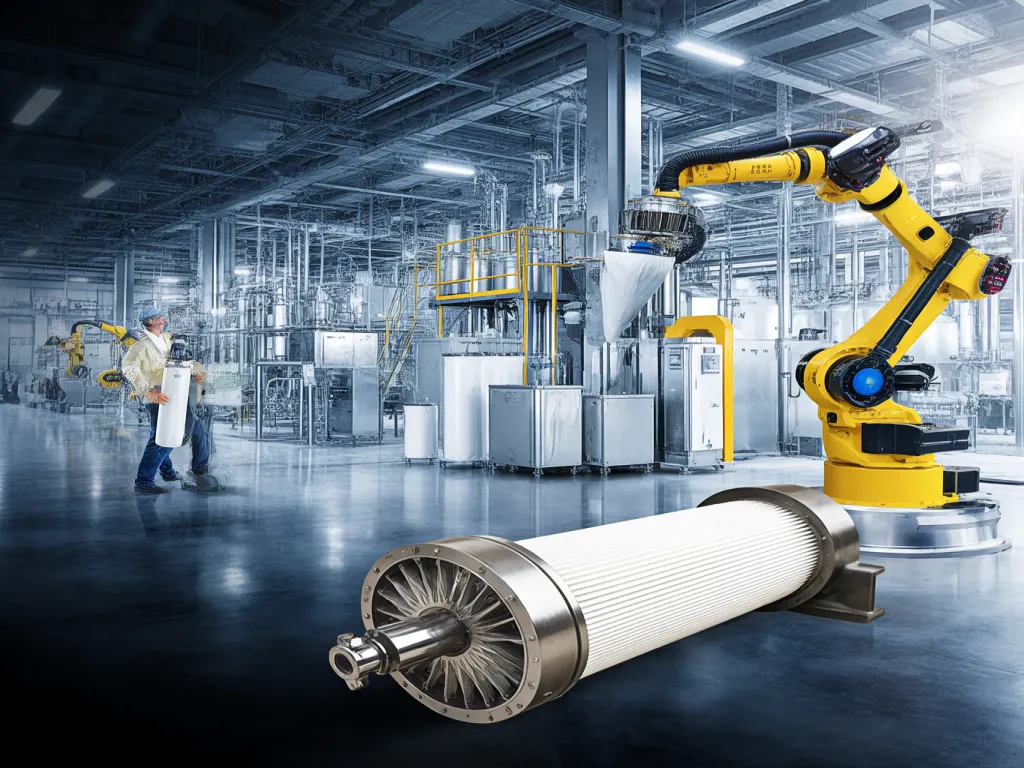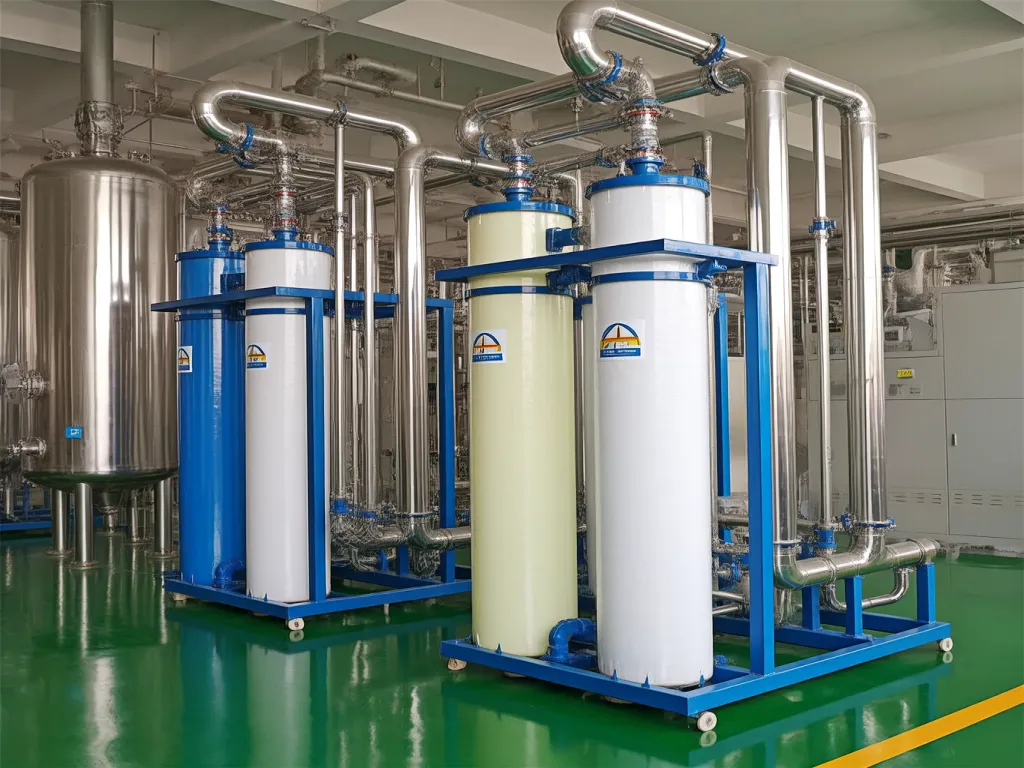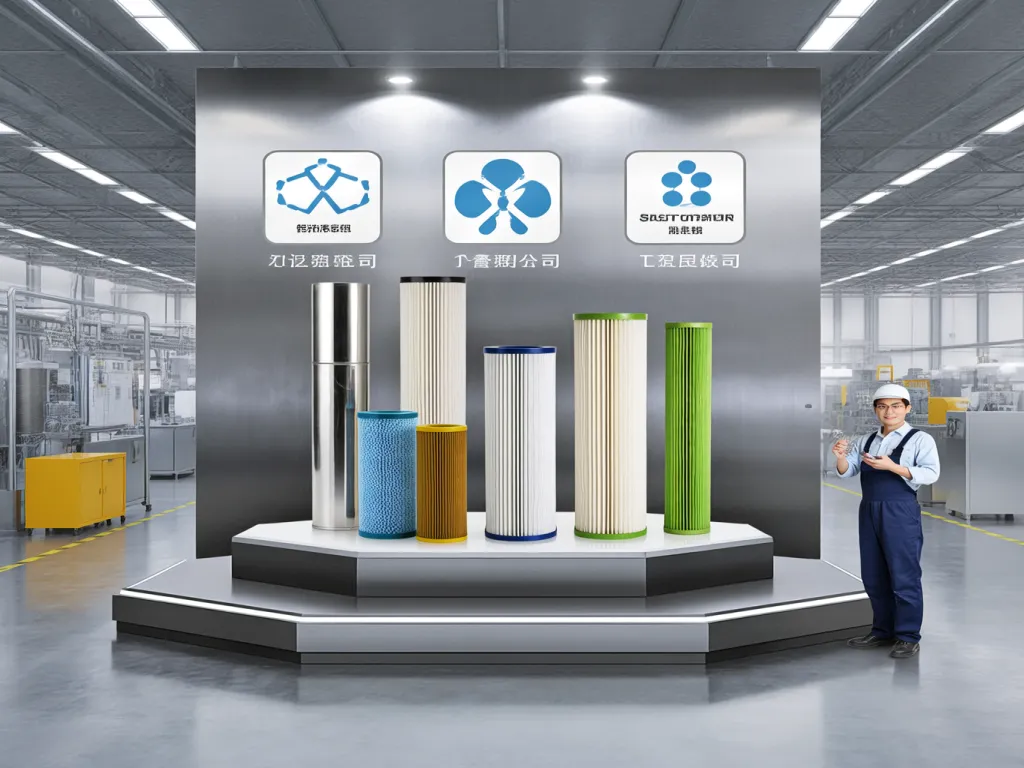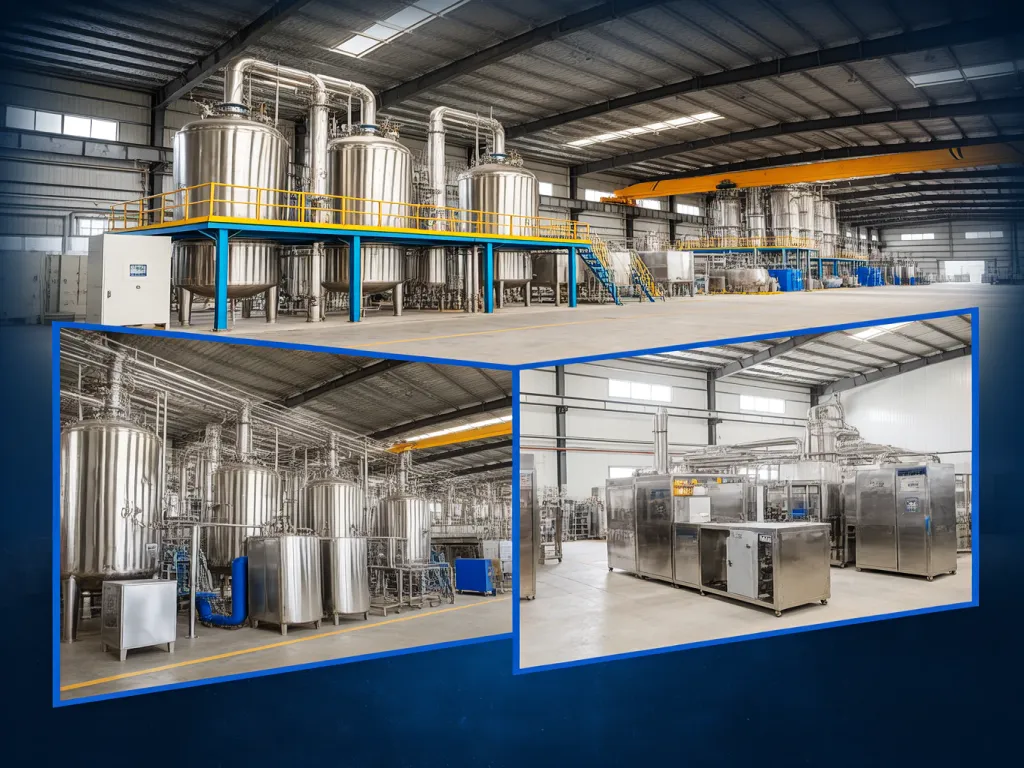Scene-Specific Filters: Master Industrial Filter Bag Integration

When it comes to industrial processes, one size rarely fits all—especially in filtration. Whether you’re in the chemical industry, food processing, or pharmaceuticals, your production line demands a filter bag system that’s not just efficient but precisely engineered for your specific environment. Enter industrial filter bag system integration: the key to unlocking optimal performance, durability, and compliance across diverse industrial landscapes. But how do you ensure your system matches your scene’s unique demands? Let’s dive in.

Industrial Scene Customization: Unlocking the Diverse Adaptability of Industrial Filter Bag System Integration
When it comes to industrial filter bag system integration, one size definitely doesn’t fit all. Different industrial scenarios—be it chemical, food processing, or pharmaceutical—demand unique specifications from their filtration systems. Understanding these nuances is crucial for optimizing performance, ensuring safety, and achieving compliance. Let’s dive into how each industry shapes the requirements for industrial filter bag systems, focusing on filtration accuracy, corrosion resistance, and temperature adaptability.
- Chemical Industry: The Battle Against Corrosion and High Temperatures
In the chemical industry, the stakes are high. Processes often involve corrosive chemicals and extreme temperatures, posing a significant challenge to filtration systems. Here, the filtration accuracy needs to be exceptionally high to prevent contaminants from affecting product quality or causing equipment damage. But it’s not just about precision; the materials used in the filter bags must withstand the corrosive nature of the chemicals being processed. This means selecting filter bags made from specialized materials like PTFE (Polytetrafluoroethylene) or PPS (Polyphenylene Sulfide), which offer excellent chemical resistance and can operate at high temperatures without degrading.
Moreover, the design of the filter bag system must consider the potential for chemical reactions between the filter media and the process fluids. A poorly chosen material could lead to catastrophic failures, emphasizing the need for thorough material selection and system design tailored to the specific chemicals in use.
- Food Processing: Purity and Hygiene Above All
Move over to the food processing industry, and the priorities shift dramatically. Here, the focus is on maintaining the highest standards of purity and hygiene. Filtration systems must ensure that no contaminants, including bacteria or particulates, find their way into the final product. This necessitates filter bags with extremely high filtration accuracy, often down to the micron level, to capture even the smallest unwanted particles.
But it’s not just about keeping things clean; the materials used must also be food-grade compliant, meaning they’re safe for contact with food and won’t leach any harmful substances. Stainless steel frames and filter bags made from FDA-approved materials are common choices in this industry. Additionally, the system design must facilitate easy cleaning and sterilization to prevent bacterial growth and maintain food safety standards.
- Pharmaceutical Applications: Precision, Purity, and Regulatory Compliance
The pharmaceutical industry takes things a step further, demanding not just purity but also absolute precision in filtration. Here, the stakes are even higher, as any impurity could compromise the efficacy or safety of the final drug product. Filtration systems must be capable of removing even the tiniest particles, ensuring the product meets stringent quality standards.
Corrosion resistance is also crucial, as pharmaceutical processes may involve aggressive chemicals or solvents. Temperature adaptability comes into play when dealing with processes that require precise temperature control, such as in the production of heat-sensitive drugs. The materials used must be able to withstand these conditions without compromising the filtration performance or introducing contaminants.
Moreover, the pharmaceutical industry is heavily regulated, meaning filtration systems must comply with strict regulatory guidelines. This includes using materials that are traceable and documented, ensuring that every component of the system meets the required standards for pharmaceutical production.
Tailoring Filtration Systems to Industry Needs
So, how do you ensure your industrial filter bag system integration meets the unique demands of your industry? It starts with a thorough understanding of your process requirements. What are the chemicals or substances you’re dealing with? What are the temperature and pressure conditions? And most importantly, what are your filtration goals—are you looking to remove particulates, separate phases, or protect downstream equipment?
Once you have a clear picture of your needs, you can begin evaluating filter bag materials and system designs. This is where working with an experienced supplier becomes invaluable. They can guide you through the selection process, helping you choose materials that offer the right balance of filtration accuracy, corrosion resistance, and temperature adaptability for your specific application.
Beyond the Basics: Additional Considerations
While filtration accuracy, corrosion resistance, and temperature adaptability are the cornerstones of industrial filter bag system integration, there are additional factors to consider. For instance, the flow rate of your process will influence the size and design of your filtration system. A higher flow rate may require a larger filter area or a more efficient filter media to maintain the desired filtration performance.
Another consideration is the ease of maintenance and replacement. In industries where downtime is costly, having a filtration system that’s easy to access, clean, and replace filter bags can significantly reduce operational costs.

How to Evaluate and Select industrial filter bag system integration Based on Scene Requirements
When it comes to industrial operations, the right filter bag system integration can make or break your production efficiency and product quality. But how do you ensure you’re selecting the perfect system for your specific scene? Let’s dive into the nitty-gritty of assessing and choosing industrial filter bag system integration based on your unique industrial needs, focusing on material selection and structural design. First things first, understanding your industrial scene is crucial. Different sectors, like chemical, food processing, and pharmaceuticals, have distinct demands. For instance, the chemical industry often deals with corrosive substances, requiring filter bags made from materials that can withstand such harsh conditions. On the other hand, the food processing industry prioritizes hygiene and safety, necessitating filter bags that are FDA-approved and easy to clean. Now, let’s talk material selection. The material of your filter bag is the first line of defense against contaminants. For high-temperature applications, like in the steel or cement industry, you’ll need filter bags that can tolerate extreme heat without degrading. Polyester, Nomex, and P84 are popular choices here due to their excellent thermal stability. But what if your scene involves corrosive chemicals? Then, you might want to consider PTFE (Teflon) or other fluoropolymer-based filter bags. These materials offer exceptional chemical resistance, ensuring your filter bags last longer even in the most aggressive environments. And for those in the food processing industry, where cleanliness is paramount, polypropylene or polyester filter bags with anti-static properties are ideal. They not only meet hygiene standards but also prevent dust accumulation, reducing the risk of contamination. Structural design is equally important. The design of your filter bag system should complement your industrial setup. For instance, if you’re dealing with high-velocity airflows, a pleated filter bag design can increase the filtration area, enhancing efficiency. Pleated bags also offer better dust release properties, reducing pressure drop and extending bag life. But what if space is a constraint? Then, consider a compact filter bag system with a high filtration area per unit volume. This way, you can maximize filtration capacity without expanding your physical footprint. And don’t forget about ease of maintenance. A well-designed filter bag system should be easy to access and replace, minimizing downtime during maintenance. Look for systems with quick-release mechanisms or modular designs that allow for easy bag replacement without the need for specialized tools. Now, you might be wondering, how do I know which material and design are right for my scene? The answer lies in thorough testing and consultation. Work with a reputable supplier who can provide sample testing in your specific industrial environment. This way, you can see firsthand how different materials and designs perform under real-world conditions. And don’t hesitate to ask for recommendations based on your industry and specific needs. A good supplier will have a wealth of experience and can guide you towards the most suitable solution. In conclusion, selecting the right industrial filter bag system integration is all about understanding your scene, choosing the right materials, and opting for a design that complements your industrial setup. By taking the time to assess your needs and consult with experts, you can ensure your filter bag system not only meets but exceeds your expectations, boosting your production efficiency and product quality.
Material Selection: The Foundation of Your Filter Bag System
Choosing the right material for your filter bag is like selecting the right armor for a battle. It needs to be tough, resilient, and up to the challenge. For high-temperature scenes, materials like Polyester, Nomex, and P84 shine with their thermal stability. These materials can withstand extreme heat without losing their structural integrity, ensuring your filter bags last longer and perform better. But what if your scene is filled with corrosive chemicals? Then, you need a material that can stand up to the attack. PTFE (Teflon) and other fluoropolymer-based filter bags are your go-to options. They offer exceptional chemical resistance, protecting your filter bags from degradation and extending their lifespan. And for the food processing industry, where hygiene is king, polypropylene or polyester filter bags with anti-static properties are the way to go. These materials not only meet strict hygiene standards but also prevent dust buildup, reducing the risk of contamination and ensuring your products are safe for consumption.
Structural Design: Enhancing Efficiency and Ease of Use
The design of your filter bag system is just as important as the material you choose. A well-designed system can enhance efficiency, reduce maintenance costs, and improve overall performance. For instance, if you’re dealing with high-velocity airflows, a pleated filter bag design can significantly increase the filtration area. This means more contaminants are captured, and your system operates more efficiently. Pleated bags also offer better dust release properties, reducing pressure drop and extending bag life. But what if space is at a premium? Then, consider a compact filter bag system with a high filtration area per unit volume. This innovative design allows you to maximize filtration capacity without expanding your physical footprint, making it ideal for crowded industrial settings. And don’t overlook the importance of ease of maintenance. A filter bag system that’s difficult to access or replace can lead to increased downtime and higher costs. Look for systems with quick-release mechanisms or modular designs that allow for easy bag replacement without the need for specialized tools. This way, you can keep your system running smoothly with minimal disruption.
Consultation and Testing: The Path to Perfection
Selecting the right industrial filter bag system integration is not a one-size-fits-all approach. It requires a deep understanding of your specific industrial scene, as well as thorough testing and consultation. This hands-on approach allows you to see how different materials and designs perform under real-world conditions, giving you valuable insights into their effectiveness and durability. And don’t be afraid to ask for recommendations based on your industry and specific needs. A good supplier will have a wealth of experience and can guide you towards the most suitable solution. They can help you navigate the complexities of material selection and structural design, ensuring you make an informed decision that aligns with your production goals and budget.

Success Stories: How Customized Industrial Filter Bag Systems Elevate Production and Environmental Standards
Let’s dive into some real-world success stories that showcase the transformative power of customized industrial filter bag system integration. These cases aren’t just about numbers and data; they’re about tangible improvements in production efficiency, cost savings, and environmental compliance.
Take, for instance, a mid-sized chemical processing plant that was grappling with frequent filter bag failures due to the corrosive nature of their chemicals. The standard off-the-shelf solutions were eating into their profits, not just through replacement costs but also through production downtime. Enter our customized industrial filter bag system. We assessed their specific chemical composition, temperature ranges, and flow rates, then engineered a system using a blend of high-grade, corrosion-resistant materials. The result? A 60% reduction in filter bag replacements and a 30% increase in overall production efficiency. But the real kicker was the significant drop in hazardous waste emissions, aligning them perfectly with environmental regulations and enhancing their corporate social responsibility profile.
Moving over to the food processing industry, where hygiene and product purity are non-negotiable, a large-scale bakery faced challenges with dust and particulate contamination affecting their product quality. Traditional filtration systems were either too coarse, letting through harmful particles, or too fine, clogging up and causing frequent shutdowns. Our scene-specific industrial filter bag integration involved a multi-stage filtration process with varying filter bag densities. The initial stages captured larger particles, while the final stages used ultra-fine bags to ensure even the tiniest contaminants were trapped. The outcome? A dramatic improvement in product quality, leading to a 25% increase in customer satisfaction scores and a significant boost in repeat business. Plus, the reduced downtime for cleaning and maintenance meant more uptime for production, directly translating to higher revenues.
In the pharmaceutical sector, where precision and sterility are paramount, a biotech firm was struggling with maintaining sterile conditions during their drug manufacturing processes. Contamination risks were high, and the cost of a single batch failure due to filtration inefficiencies could run into millions. Our customized industrial filter bag system for pharmaceutical applications featured sterile-grade materials, rigorous validation processes, and real-time monitoring capabilities. The impact was immediate and profound: zero batch failures due to filtration issues in the first year post-implementation, a 40% reduction in quality control costs, and a sterling reputation for product reliability that opened doors to new, high-value markets.
These stories aren’t isolated incidents; they’re a testament to the power of customization in industrial filter bag system integration. By understanding the unique challenges of each industrial scene, we can engineer solutions that not only meet but exceed expectations, driving production benefits and environmental standards to new heights. So, if you’re still relying on generic filtration solutions, ask yourself: are you maximizing your production potential and environmental compliance? Or are you leaving money—and sustainability—on the table?
Chemical Industry Case Study
In the chemical industry, where corrosive substances are the norm, our customized industrial filter bag system integration proved its mettle. By selecting materials that could withstand the harsh chemical environment, we not only extended the lifespan of the filter bags but also enhanced the overall efficiency of the filtration process. The plant reported a significant decrease in operational costs due to fewer replacements and less downtime. Moreover, the environmental impact was substantial, with a marked reduction in harmful emissions, showcasing how tailored solutions can drive both economic and ecological gains.
Food Processing Industry Transformation
For the food processing industry, the stakes are high when it comes to product purity. Our multi-stage filtration system, designed specifically for this sector, addressed the dual challenge of capturing contaminants without causing production interruptions. The bakery’s experience underscores the importance of scene-specific industrial filter bag integration. By fine-tuning the filtration process to their exact needs, we not only improved product quality but also streamlined operations, leading to increased customer loyalty and higher profits.
Pharmaceutical Sector Breakthrough
In the pharmaceutical sector, where sterility is non-negotiable, our customized solution set a new benchmark. The biotech firm’s success story highlights how investing in high-efficiency industrial filter bag customization can mitigate risks and enhance product reliability. The sterile-grade materials and real-time monitoring ensured that every batch met the stringent quality standards, safeguarding the company’s reputation and financial health. This case exemplifies how tailored filtration systems can be a game-changer in industries where the cost of failure is prohibitively high.
Choosing the right industrial filter bag system integration isn’t just about ticking boxes—it’s about aligning technology with your industrial scene’s DNA. From chemical-resistant materials to food-grade designs, every detail matters. By now, you’ve seen how tailored solutions boost efficiency, cut costs, and meet stricter environmental protection standards. Ready to transform your filtration game? Start by assessing your scene’s needs, then explore customized systems that fit like a glove. Share this guide with your team, or drop us a line to discuss your next-level filter integration—because your production line deserves nothing less.
